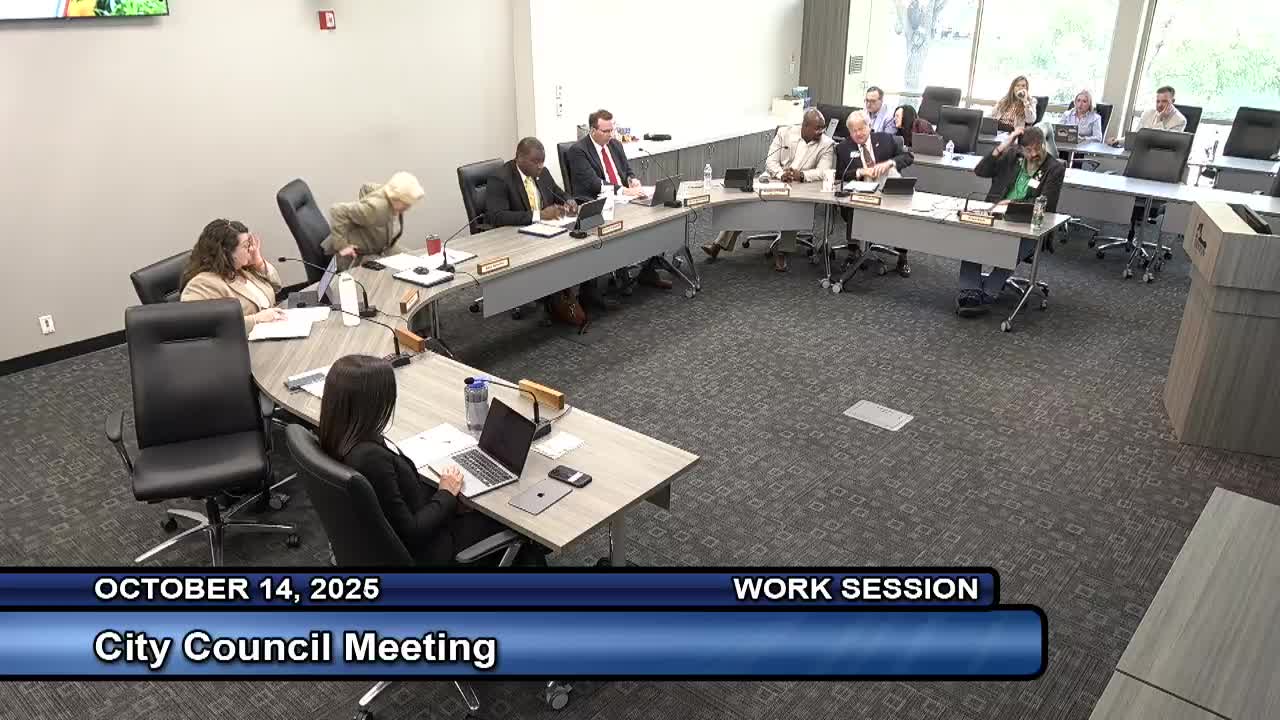City auditor reports progress and remaining gaps in animal services follow-up review
Get AI-powered insights, summaries, and transcripts
Subscribe
Summary
A city follow-up review found 5 of 34 prior audit recommendations implemented and most others in progress, noting improvements in care documentation, microchipping, and live-release rates but continuing staffing and drug-inventory gaps. Councilmembers asked about staffing, timelines for a shelter expansion and documentation of controlled drugs.
The Denton City Auditor on Oct. 14 reported substantial progress but outstanding work on recommendations from a January 2025 audit of Animal Services, finding five recommendations implemented and 28 in progress.
The auditor’s follow-up review, presented to the Denton City Council by Madison Rorschaw, said animal-care monitoring improved after staff implemented a daily health-and-wellness monitoring system and streamlined standard operating procedures. The report also found live-release rates have “regularly surpassed” the commonly referenced 90% goal, and that the city implemented a microchipping fee and better public information for lost-animal searches.
The follow-up matters because the original audit identified risks including inconsistent daily-care documentation, gaps in vaccine recording, lack of inventory procedures for non-euthanasia drugs, and insufficient staff to deliver both field services and expanded shelter care. The auditor said roughly 50% of animals sampled had documented daily care for every day in the shelter and that inventory procedures for certain non-euthanasia drugs have not yet been established because of resource constraints.
City staff described changes and remaining needs. Nikki Sassenas, director of Animal Services, said two animal-care technician positions were added in the FY2025 budget but remain unfilled amid managerial turnover; she estimated that once those positions are filled, Animal Services should no longer routinely depend on field officers to complete minimum daily shelter care. Sassenas also said the department has partnered with a contracted crew (Our Daily Bread) that supplements cleaning, feeding and walking shifts while hiring continues.
Council members pressed on staffing and timing. Mayor Pro Tem asked when the shelter expansion and remodel would be completed; Sassenas said schematic design is at about 75% and staff expect to break ground around March 2026, with some recommendations tied to the expanded facility. Councilmember questions also clarified that the department currently has 29 FTEs citywide but typically only about eight employees on duty each day dedicated to animal care, meaning more FTEs would be necessary to provide the higher level of “enhanced” or “advanced” care cited in the audit.
The auditor flagged drug-inventory risk. Although euthanasia drugs — controlled substances under federal rules — are stored under physical controls and documentation has improved, Rorschaw said non-euthanasia drugs (some human- and animal-prescribed medicines) lack full inventory monitoring and pose theft or misuse risk. The audit recommended prioritizing high-risk drugs for inventory procedures; the city said it has implemented physical controls (locked cabinets, badge access) and has added PetPoint entries to record use of sedation drugs, but an independent verification process of veterinary-contract billing and a full inventory verification process remain to be completed.
On medical care, the auditor reported vaccine documentation for cats improved while documentation for dogs “has remained similar or fallen” and monthly health rechecks for animals with long stays (30+ days) have not yet been implemented, though daily wellness monitoring has increased booster administration. The city also adopted a written euthanasia policy on July 1, 2025, requiring extra review before euthanasia and requiring sedation-drug documentation; compliance with that new policy will be evaluated in the next follow-up.
The report concluded the department is moving in the right direction but noted resource constraints. The auditor said 5 of 34 recommendations are complete and 28 are in progress; one recommendation on non-euthanasia drug inventory has not been implemented due to staffing and operational burden. The auditor’s office plans a second follow-up review in FY2027.
Council members and the city manager publicly praised staff progress. The city manager and council members thanked Animal Services leadership and volunteers and said they are monitoring staffing needs and will look for ways to provide additional relief while the expansion proceeds.
The council did not take formal action on the report; the auditor and department will return in a later audit cycle to assess implementation.
